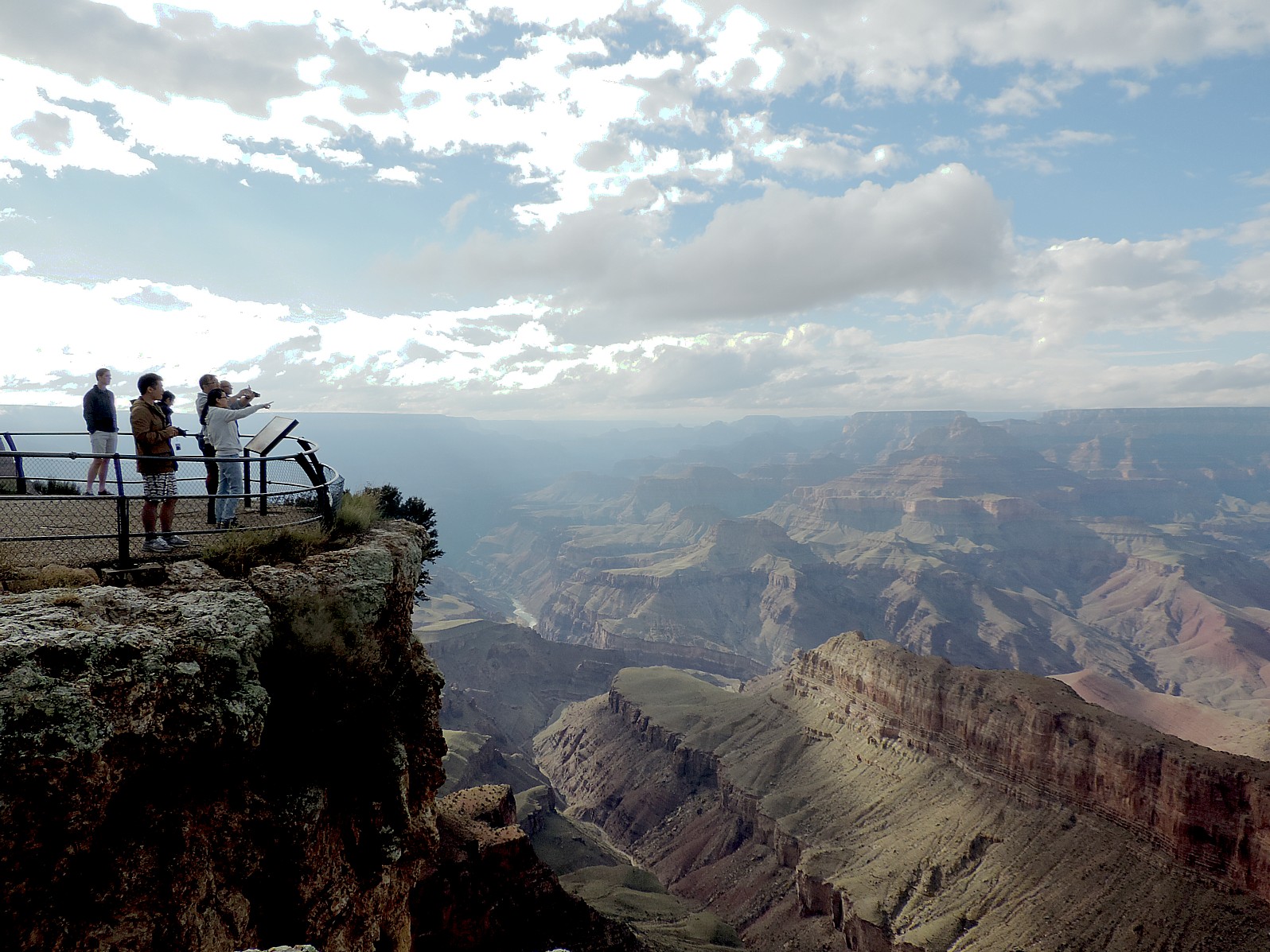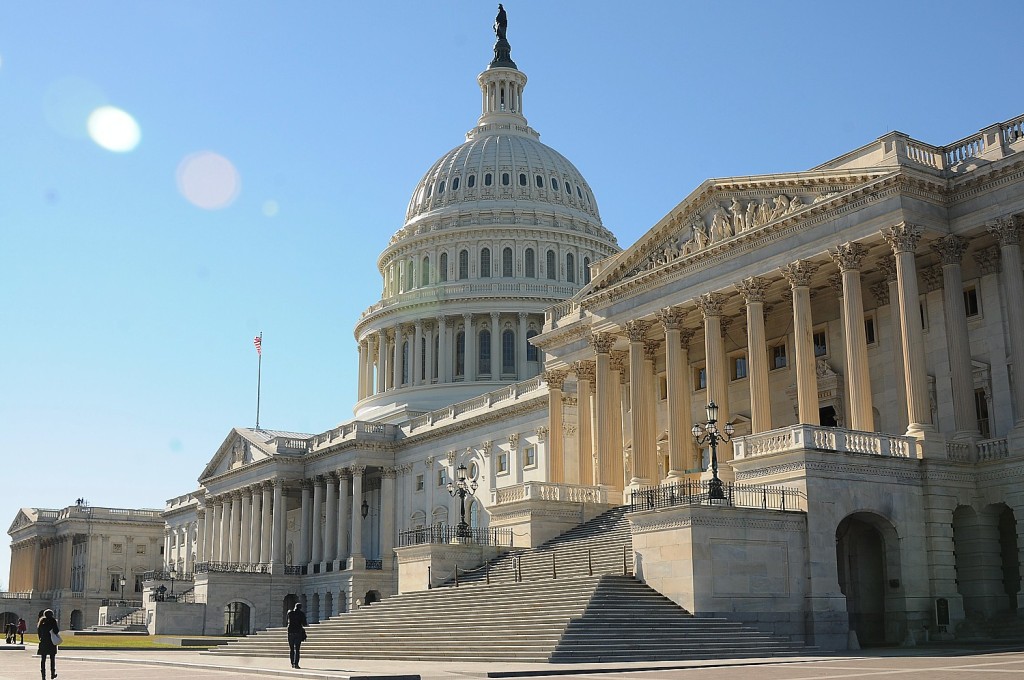
By Karen Rubin, news-photos-features.com
(see Update below)
It is beyond infuriating that Republicans, who every four years call themselves the “Party of Lincoln,” can claim the Clean Air and Clean Water acts and the EPA which were signed when Richard Nixon was president, and that on this, the 100th anniversary of the National Park Service, we all can thank President Theodore Roosevelt, a (Progressive) Republican, for America’s “best idea” – our national park system.
That’s because these are under attack by today’s Republicans – the party of Donald Trump. Today’s Republicans bear as little resemblance to the party of Lincoln or Roosevelt as George Wallace to the Democratic party.
Republicans are so infuriated by the 22 national monuments and preserves Obama has designed during his time in office using his powers under the Antiquities Act (265 million acres of public lands and waters — more than any administration in history), that they have tried to repeal it and take the power to preserve lands from for the use of all Americans, equally, into the hands of greedy developers (a la Donald Trump).
Trump is probably thinking, “Donald J. Trump will be the president who dispatches the $19 trillion national debt – I only need to sell off Yellowstone, and maybe Yosemite,” (no doubt to the cheers of Peter G. Peterson, who is obsessed with the national debt, see www.pgpf.org/.)
As New York Times columnist Nicholas Kristof noted in his annual paean to the national parks, fresh from his hike along the Pacific Crest Trail, the most democratic place in America isn’t the voting booth, but the national parks.
“Even in the Great Depression, an impoverished America could afford to work on building paths like the John Muir Trail, yet today we can’t afford to maintain them properly,” Kristof writes. “Our predecessors pretty much invented the idea of national parks and wilderness trails, bequeathing us an inheritance of incalculable wealth. And on our watch, as we mark the 100th birthday of the National Park Service, we’re squandering it.”
Our national parks system are overwhelmingly popular – indeed, the number of annual visits to non-local parks (not even counting if New Yorkers climb the Statue of Liberty), equates to one per person.
According to a study by Linda J. Bilmes and John Loomis published in US News, the national park system is valued at $92 billion a year, but total revenue, including Congressional appropriation comes to a mere $3 billion a year. Meanwhile, Congress has cut its funding for NPS by 15 percent over the last 15 years (after factoring inflation), while its backlog of overdue maintenance projects amounts to $12 billion a year (and rising).
“Consequently, the agency is fighting an uphill battle to keep parks pristine and unspoiled as visitor numbers climb and climate change stresses natural resources in the parks.”
Despite opposition from Republicans – or perhaps because of it – Obama has during his tenure designated more national monuments using his power under the Antiquities Act than any prior president (much as he has had to resort to Executive Orders to get anything else done): Obama not only has saved natural treasures for generations to come, but has used the designations to tell a more complete story of America’s heritage, so that more of our community can feel the same sense of pride: So, in addition to preserving natural settings like Browns Canyon National Monument, New Mexico, San Gabriel Mountains National Monument and Sand to Snow National Monument, California, Obama designated monuments honoring Black-Americans (Charles Young Buffalo Soldiers Monument, Ohio; Harriet Tubman Underground Railroad National Monument), Hispanics (Cesar Chavez National Monument ), workers (Pullman National Monument, Illinois), women (Belmont-Paul Women’s Equality National Monument, Washington, DC), and the latest one, LGBT Stonewall National Monument, New York. (See a full list of monuments designated under the Antiquities Act, going back to Theodore Roosevelt, who designated the first National Monument, Devils Tower National Monument, Wyoming, in 1906. www.npca.org/resources/2658-monuments-protected-under-the-antiquities-act.)
“Stonewall will be our first national monument to tell the story of the struggle for LGBT rights. I believe our national parks should reflect the full story of our country – the richness and diversity and uniquely American spirit that has always defined us. That we are stronger together. That out of many, we are one. That’s what makes us the greatest nation on earth. And it’s what we celebrate at Stonewall – for our generation and for all those who come after us,” Obama said at the ceremony.
Meanwhile, the National Park Service and national park system has been under assault by Republicans, who not only have tried to repeal the President’s power under the Antiquities Act, but regularly introduce bills to remove impediments to private/corporate access and use of federal lands.
“This includes three dangerous new bills that would allow millions of acres of national forests to be auctioned off by the states for mining, logging, drilling, road construction and more. This would happen with no regard for current environmental protections, and could cut off access to our shared public lands,” writes The Wilderness Society’s Alan Rowsome, Senior Director, Government Relations for Lands.
Grand Canyon National Park is celebrating its 100th birthday, but potential uranium mines and logging of old growth ponderosa pine forest just outside the boundary directly threaten water quality, human health, wildlife connectivity and cultural heritage protected by this most wondrous preserve. Because the Republican-controlled Congress has refused to act on legislation Rep. introduced by Raul Grijalva, the Wilderness Society is calling for Obama to proclaim a Greater Grand Canyon Heritage National Monument.
Republicans have even blocked donations of land: for example, the National Park Service was set to receive 87,500 acres of pristine land in the Maine Woods from a non-profit organization started by the founder of Burt’s Bees, which would be used to designate a new national monument and, eventually, a new national park.
Who is responsible for blocking the acquisition? Believe it or not, the chair of the House Natural Resources Committee, Rep. Rob Bishop (R-Utah), who has led a crusade to overturn the Antiquities Act.
“When he learned that President Obama used the Antiquities Act to protect 704,000 amazing acres as the Basin and Range Monument in Nevada, Representative Bishop called that ‘shameless.’ He even said that the Antiquities Act was ‘evil in the flesh’,” writes The Wilderness Society’s Alan Rowsome. “When he was informed that Basin and Range was home to many Native American artifacts, including cave paintings, he replied ‘Ah, bull crap. That’s not an antiquity’.”
The anti-National Parks furor is bound up with climate denial and a fervent effort to shut down the Environmental Protection Agency, which is itself wrapped up in a goal of preserving the status quo for the Capitalists who currently control the economy. Of course, clean, renewable energy would be a new capitalist endeavor, creating a new generation of millionaires, but that would displace the current Power Brokers whose wealth is tied to fossil fuels.
But setting aside land does not only mitigate against climate change, the national parks are also victims.
As Obama wrote after personally visiting two national parks: National Parks — spectacular natural treasures that are available to everybody, not just the lucky few — have been called America’s best idea. Under my administration, we’ve protected more than 265 million acres of public lands and waters — more than any administration in history. I’ve been proud to build on the work of the giants of conservation and environmental protection who came before me, like President Lincoln who first protected the Yosemite Valley in 1864, and President Teddy Roosevelt, who spoke so eloquently about why our strength and future as a nation relied on protecting our precious natural resources.
But there is more we must do to protect our parks and to protect this planet for generations to come. Make no mistake: The biggest challenge we are going to face in protecting them is climate change.
That’s why we’ve worked so hard to jump-start a clean energy revolution and to build a solar industry that’s growing by leaps and bounds. That’s why we’re tackling carbon pollution through the Clean Power Plan here in America and by rallying the whole world to tackle climate change together through the Paris Agreement.
Climate change is no longer just a threat; it’s already a reality. Yosemite meadows are drying up. Bird ranges are shifting further north. Alpine mammals are being forced further upslope to escape higher temperatures. We’re also seeing longer, more expensive, and more dangerous wildfire seasons — fires that are raging across the West right now.
In the coming years and decades, rising temperatures could mean no more glaciers at Glacier National Park and no more Joshua trees at Joshua Tree National Park. Rising seas could destroy vital ecosystems in the Everglades and at some point might even threaten landmarks like the Statue of Liberty and Ellis Island. Doing nothing to stop those changes is not the example we want to set for the next generation.
We have to take seriously the idea that these treasured places could be marred or lost to history. We can’t deal with it later or think that it’s somebody else’s problem. And we can’t let climate change deniers carelessly suggest that we don’t need to get serious about the carbon pollution being released into our atmosphere or that we should scrap an international climate treaty that we spent years putting together. We can’t afford to go backward.
And much the same as clean, renewable energy is no threat to America’s capitalist model, national parks and monuments may be communally owned and enjoyed, but are also very much part of the Capitalist fabric: Headwaters Economics calculated that in 2015, non-local park visits totaled 307,247,267, spending amounted to $16.9 trillion, visitor spending (alone) supported 251,997 jobs and $8.1 trillion in income. There are whole towns, as well as tens of thousands of small businesses, that depend upon their proximity to a national park (as was dramatically demonstrated when Republicans shut down government in 2013.)
This does not even take into consideration the public health benefits of national parks, the value to families, to the benefits of personal experience. Priceless to be sure, if not incalculable.
Signing a proclamation honoring the 100th anniversary of the National Park Service, Obama declared, “NPS parks and programs strive to tell our diverse stories, allowing us to learn from the past and help write our country’s next great chapters. In celebration of the 100th anniversary of the National Park Service, let us thank all those who — through their dedication to the mission of the NPS — help our country build on the legacy left by all those who came before us. As we look to the next century and embrace the notion that preserving these public spaces in ways that engage, reflect, and honor all Americans has never been more important, let us summon the foresight and faith in the future to do what it takes to protect our National Parks for generations to come.” (see 2016parkservice.prc.rel.pdf)
Update: Marking the 100th anniversary of the National Park System, President Obama designated the Katahdin Woods and Waters National Monument in Maine as our 413th national park site. The park is more than 87,500 acres in size and sits along the East Branch of the Penobscot River in Maine. In addition, Obama will more than quadruple the size of the Papahānaumokuākea Marine National Monument off the coast of Hawaii, creating the world’s largest marine protected area.
_________________________
© 2016 News & Photo Features Syndicate, a division of Workstyles, Inc. All rights reserved. For editorial feature and photo information, go to www.news-photos-features.com, email editor@news-photos-features.com. Blogging at www.dailykos.com/blogs/NewsPhotosFeatures. ‘Like’ us on facebook.com/NewsPhotoFeatures, Tweet @KarenBRubin

